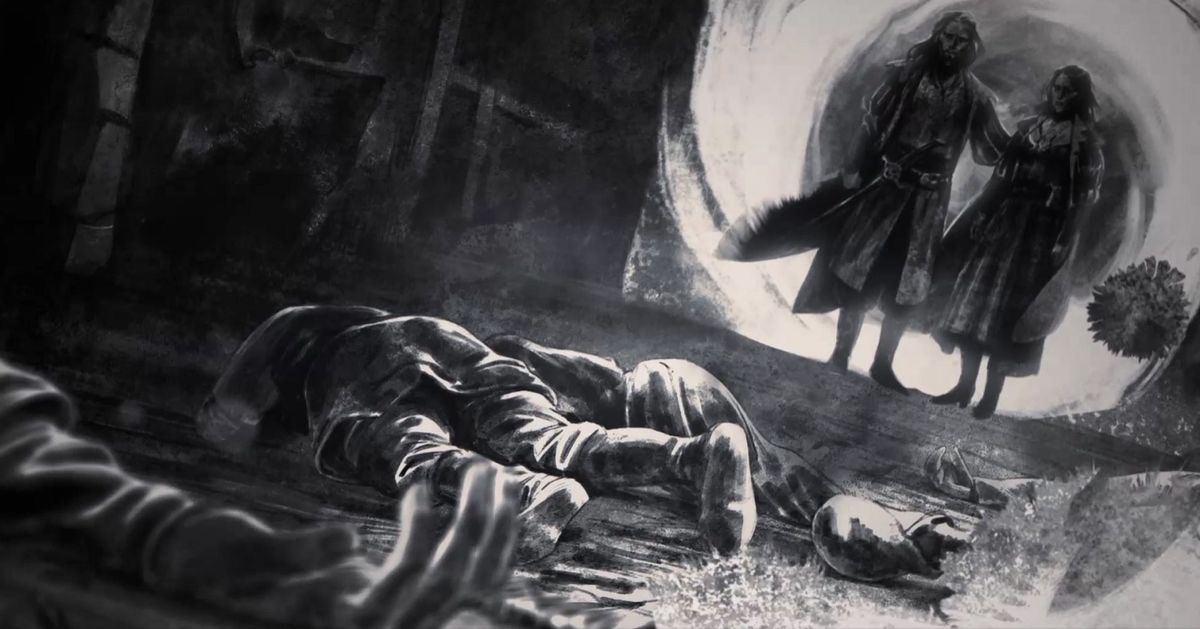We got a nice surprise on June 7 when Gwent: Rogue Mage dropped—a new Witcher universe game that scratches that Geralt-less itch. Fans of The Witcher 3’s Gwent card game were treated to an online multiplayer version back in 2017, as well as a standalone RPG, Thronebreaker: The Witcher Tales. Gwent: Rogue Mage is the first Witcher-themed game released since then, focusing on the tale of the mages who created them.
One thing I’ve realised since playing Rogue Mage is that I’m actually not as good at Gwent as I thought. While I’ve figured out the meta for some of the cards, there are certain enemy types that keep obliterating me and, as PC Gamer’s resident Witcher aficionado, I’m not happy about it. As anyone who’s played Gwent or Thronebreaker knows, the rules are very different to that of The Witcher 3’s original. Cards have abilities, you can cast spells, and passive cards remain on the board throughout the match. It’s like Gwent if the sorceresses created it—full of chaos.
How’d you like that permadeath?
The new element introduced in Rogue Mage is in its title—it’s a rogue-like game with RPG elements. Rather than begin a new game in the traditional sense, you start a new timed run and, if you are defeated, it’s permadeath time for you. The map and events are procedurally generated, too, so you won’t encounter the same events twice. It does appear to begin the same way, with a battle and a treasure chest selection, but after that, it’s up to you to plot the path that will meet your needs and get you to the boss fight.
In Thronebreaker, you traversed the map as Queen Meve and had more freedom to choose your heading. In Rogue Mage, the map remains, but now, as titular rogue mage Alzur, you must choose from various set paths through the landscape. To choose which direction to go in, you’ll need to decide whether you want to face a battle, open a chest, gain energy from a place of power, or encounter an event.
Your goal is to reach a battle with some of the Witcher universe’s most powerful monsters to gather their powerful mutagens—the key ingredient to creating Witchers. Killing a sentient monster like a dragon goes against the Witcher code, but it seems that this particular mage cares more about his pending creations.
Who taught you to fight like this?
The ‘battles’ are of course card matches, using cards that come with a range of abilities and perks that you’ll recognise from Gwent and Thronebreaker. Most are single-round battles, featuring passive cards that remain on the board to reduce energy costs for spells, provide armour and more. There are also elite battles which are a serious challenge and can absolutely destroy your chances of reaching the boss at the end. Watch out for the Chapter Interrogator and Alchemist enemies—they messed up more than one of my runs with their totally OP card transformations and spying buffs.
You’ll need to balance taking the shortest path to the boss, finding chests to get new cards and interacting with places of power to replenish your energy levels. Events offer you unique opportunities to gain extra cards, but choose poorly and you’ll end up with wound cards which, when pulled, will penalise you during your run. Regardless of whether you die at the first battle or the last, you’ll gain experience and will level up, unlocking new decks and cards. There’s no option to pass with cards still in your hand, either—whether you want to or not, you’ll need to use every card to end a match.
Passive cards provide some of the best bonuses, giving you that much-needed edge. Choosing the Prism Pedant card reduces energy costs to one, meaning that you’ll reserve more energy to cast spells in elite battles and bosses. To endlessly deal damage—even if it’s only by one point—place a Tridam Infantry to the right of a Temerian Drummer, as it’ll damage an enemy whenever it’s boosted. Taking the time to read and understand the various buffs, perks and stat changes of each card is critical if you want to make it beyond the first few map points: Rogue Mage soon enough shows itself to be a marathon, not a sprint.
Kings die, realms fall, but magic endures
Disappointingly, the card battles are pretty light on narrative and the majority don’t add much to the story. The interactions between Alzur and his companion Lily, however, are just what you’d expect in a Witcher story. While Lily tries to keep Alzur on the straight and narrow—the good path, you might say—Alzur remains headstrong and committed to creating his living weapon. As with all Witcher games, you’re only one step away from having to make a morally grey decision, so choose wisely.
Gwent is a game that’s close to my heart, so getting my arse handed to me by no-mark enemies like bandits is devastating. I didn’t replay all those Gwent missions in The Witcher 3 hundreds of times to lose to petty robbers. Rogue Mage requires a steady hand and nerves of steel in comparison, as choosing the wrong path will ultimately be your downfall. Whether you enjoyed a few rounds of cards in The Witcher 3 or the complexity of playing Gwent online, Rogue Mage offers a unique blend of deckbuilding and strategy that is infuriatingly brilliant.
